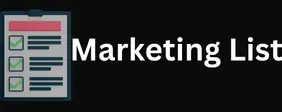Understanding the Threat of Medicare Telemarketers
Medicare telemarketers often target seniors. They present various offers for plans. Some calls are legitimate. Many others are predatory scams. These unwanted calls create fear. They also cause confusion among beneficiaries. Understanding their methods is crucial. It helps in protecting personal information. It also prevents financial loss. Be cautious of unsolicited calls. Always verify the caller’s identity. Never share sensitive data easily.
The rise of telemarketing scams is concerning. Bad actors exploit trust. They pretend to be official sources. Their goal is to gain access. This access could be to your Medicare number. It might be for banking details too. Scammers use sophisticated tactics. They pressure individuals into decisions. This pressure often leads to poor choices. It is vital to stay informed. Awareness is your first defense. Know the warning signs of fraud. Report suspicious activity immediately. Protecting seniors is a shared responsibility.
Deceptive Tactics Employed by Unscrupulous Medicare Callers
Deceptive Medicare telemarketers use many tricks. They might offer “free” medical equipment. Often, this equipment is unnecessary. They might promise large savings on premiums. These promises are usually false. Some callers threaten loss of benefits. This tactic pressures enrollment. Others claim to be from Medicare itself. Medicare does not typically make unsolicited calls. Be skeptical of urgent demands. Legitimate organizations allow time. They offer clear, written information. Scammers aim for instant compliance. They want you to act without thinking.
Telemarketers can be very convincing. They sound professional and knowledgeable. They may even have some of your details. This information can be purchased. It might be obtained from data breaches. They might use automated robocalls. These calls bypass Do Not Call lists. Sometimes, they spoof caller IDs. The number appears local or official. Always question unexpected calls. Hang up if you feel pressured. Your best defense is a simple hang-up. Never feel obligated to talk. You have the right to refuse.
Identifying and Responding to Illegal Medicare Telemarketing
Identifying illegal Medicare telemarketing is key. Look for specific red flags. Unsolicited calls from unknown numbers are suspicious. Callers demanding personal details are dangerous. They might ask for your Medicare ID. They could request your Social Security number. Banking information is also a target. Never provide these details over the phone. Medicare plans are complex. Scammers simplify them too much. They promise too good to be true deals. If an offer seems unrealistic, it probably is. Real agents verify your eligibility. They do not pressure immediate sign-ups. Always consult official Medicare resources. Use the official website or helpline.
When you receive such a call, remain calm. Do not engage with the telemarketer. Do not confirm any personal details. Even saying “yes” can be risky. Scammers record responses. They edit them to seem like consent. The best action is to hang up. Blocking the number is also helpful. Keep a log of unwanted calls. Note the date, time, and number. This information can be useful later. It aids in reporting these activities. Many telemarketing calls originate globally. Some data acquisition methods are widespread. For example, comprehensive datasets like those for Netherlands WhatsApp Data exist for various marketing and communication needs, showing the breadth of data available globally, though unrelated to Medicare fraud directly.
Reporting Fraudulent Medicare Telemarketers Effectively
Reporting fraudulent Medicare telemarketers is vital. Your actions protect others. Start by gathering all details. Note the caller’s phone number. Write down the date and time. Any names mentioned are helpful. Describe the offer or threat. Document the tactics used. Contact official channels to report. The Federal Trade Commission (FTC) is one option. Use their Do Not Call Registry. Report violations to them directly. The Centers for Medicare & Medicaid Services (CMS) also helps. They have specific fraud hotlines. Your state’s Attorney General’s office is another resource. They handle consumer complaints. Prompt reporting disrupts scam operations. It helps authorities investigate. It prevents further harm to beneficiaries. Be a proactive guardian of your rights.
Do not feel embarrassed if you were targeted. Scammers are cunning and sophisticated. They prey on vulnerabilities. Reporting is a brave act. It strengthens consumer protection. It builds a safer community. Share your experiences with family. Educate your friends about risks. Collective awareness reduces fraud. Every report makes a difference. Help law enforcement track down criminals. Your contribution is invaluable. Remember, you are not alone. Many people face these calls. We can fight them together. For more detailed guidance on how to secure your personal information and financial assets from such illicit schemes, consider exploring resources on Consumer Protection Against Scams. This proactive approach strengthens your defense.
Proactive Steps to Protect Against Medicare Telemarketing Scams
Taking proactive steps is crucial. Register your phone number. Place it on the National Do Not Call Registry. This reduces many unwanted calls. Be wary of unknown numbers. Let them go to voicemail. Check messages before calling back. Avoid answering calls from unlisted numbers. Do not trust caller ID alone. Scammers can manipulate it. Never give out personal data. This includes your Medicare ID. It means Social Security numbers too. Legitimate agencies already have this information. They will not ask for it over the phone. Protect your health insurance card. Treat it like a credit card. Keep it secure and private. Shred old Medicare documents. Do not just throw them away. Your security is paramount.
Regularly review your Medicare statements. Look for services you did not receive. Report any suspicious charges promptly. Stay informed about common scams. Fraud alerts are often published. Read newsletters from Medicare. Attend community workshops on fraud. Share this knowledge with others. Educate vulnerable family members. Teach them about common telemarketing tricks. Encourage them to be suspicious. Remind them to hang up quickly. Empower yourself with information. A well-informed consumer is a difficult target. Vigilance protects your well-being. It safeguards your financial future. This continuous effort is essential. It guards against
